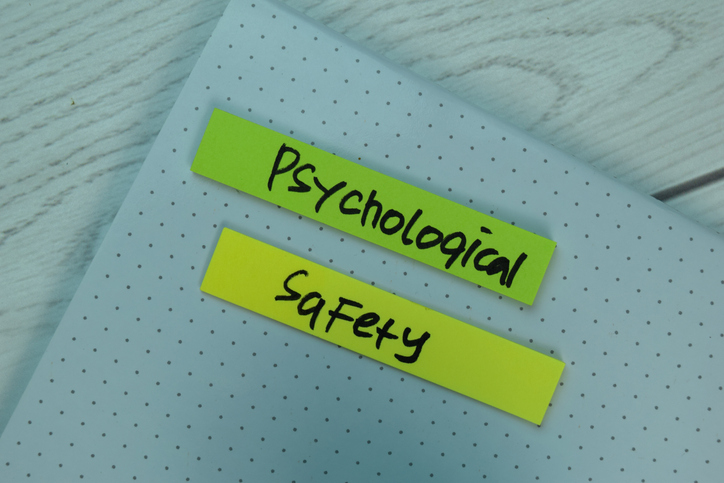
Author - Russell Bourne
Original Publication Date - May 19, 2021
In recent years, the concept of Psychological Safety emerged as one of the most important factors that make a business sink or swim. Psychological Safety plays an important role not only as a factor in good DEI policy, but in the performance of Customer Success organizations.
Let’s begin with a layperson’s definition of Psychological Safety: it’s the feeling that you are free to show your true self and ideas, without fear of negative consequences.
Psychological Safety as a DEI Driver
Have you felt like you have a “work self” and a “real self”? Maybe your boss expects you to dress and talk a certain way, and you go along with it. Maybe you find yourself using corporate jargon you know is empty and soulless. It’s exhausting to keep up the mask of being someone you’re not.
There’s no doubt such feelings are especially intense for groups like women, minorities, LGBT, and so on. For these groups, the gap between their real selves and the expectations of their work selves is wider.
Leaders who purposefully create psychologically safe work cultures will eliminate that gap for everyone. That’s good DEI policy, good for employee mental health, and is simply the right thing to do. If this sounds like fluffy feel-good talk, let’s look at some concrete ways doing the right thing is also good for business.
Psychological Safety as a Business Driver
When employees don’t feel psychologically safe - when they need to spend mental energy on being someone they aren’t - one of two things will happen: they’ll burn out, or they’ll leave. The drawbacks of having a disengaged workforce are well-documented. The same goes for constantly having open headcount, where the employees you do have are either new and not ramped up, or are burning out covering the extra work. An especially devastating snowball effect happens when a business earns a reputation for having poor culture, and finds itself unable to hire the best talent.
On the flip side, a psychologically safe environment is ripe for innovation because by definition, employees are enabled to bring up new ideas. They know they’ll be celebrated for brainstorming out loud and trust a bad idea won’t damage their reputation. Failure is celebrated because it brings innovation!
Customer Success organizations need innovation more than any other, because as most people in Customer Success know, there is no standard operating model for Customer Success. Each company’s CS team must find their sweet spots for coverage models, segmentation, comp planning, tech stack, and so on. Fail to turn over the right stone, and you may miss your goals on retention and expansion.
For further reading, the reference section in Wikipedia’s Psychological Safety entry is full of fantastic resources:
https://en.wikipedia.org/wiki/Psychological_safety#References
#Career
#CustomerSuccess
#Diversity,EquityandInclusion
#PeopleLeadership